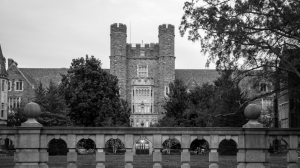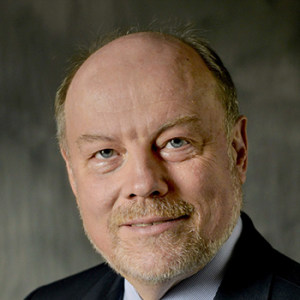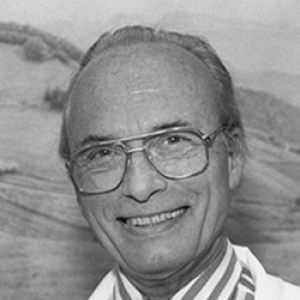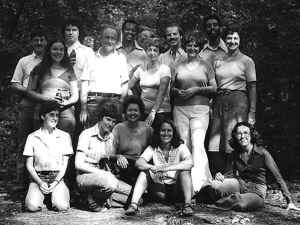Inspired by the Greats of Duke Pathology
When James Junker, PhD’80, first came to Duke to pursue a PhD in pathology in the mid 1970s, he was surrounded by esteemed faculty members who were greats in their field. He credits many of them, including Joe Sommer, MD, with influencing his own successful career and for inspiring him to give back to the department that he says gave him so much.
Junker joined Sommer’s lab right after earning his undergraduate degree from Muhlenberg College in Allentown, Pennsylvania. Inspired by coursework in microanatomy and cell biology, Junker came to Duke specifically seeking a program where he could work with an electron microscope, and good fortune landed him in the lab of a worldwide leader in the field of cardiac muscle.
Looking back on his time with Sommer, who also was his graduate advisor, Junker remembers that his mentor wanted his students to be self-motivated. He encouraged his students to find an inspiring topic of study and then enabled them to pursue their best work.
“A degree in pathology is very versatile and gives you a lot of flexibility,” Junker says. “The Duke Pathology Department gave me the opportunity to find what I wanted to do and pursue it. Dr. Sommer allowed his students such freedom that I was able to craft my own, broadly based biomedical curriculum, anchored in pathology, that served me very well in my career.”
Out of gratitude for his Duke education, Junker recently made a generous bequest that will be split evenly between the Chapel music program and the Department of Pathology’s educational initiatives.
“I am indebted to Duke,” Junker says of his decision to include Duke Pathology as part of his estate planning. “Leaving an estate gift is one way I can express my appreciation for the excellent academic and research foundation that I received from the Duke University Department of Pathology.”
Upon graduating with his doctoral degree from Duke in 1980, Junker pursued two research fellowships: first, a post-doctoral position at the University of Pennsylvania’s Muscle Institute, followed by four years as a staff fellow at the National Cancer Institute. Junker then went on to teach comparative animal physiology, among other things, for two years at Bayero University Kano in Nigeria. He credits his success in teaching this particular course to a class on animal physiology he took at Duke’s Marine Lab.
Junker joined the faculty of Campbell University’s Pharmacy School in 1989 as an assistant professor. Because Sommer had not yet retired from Duke, Junker had the opportunity to rejoin the lab and continue publishing important research papers. One such first-author paper propelled Junker’s career even further, helping him secure a promotion to associate professor of pharmaceutical sciences in 1994.
In total, Junker spent 20 years teaching pharmacy students at Campbell, a joy he remembers fondly. “I had the 8 a.m. anatomy and physiology class for the first-year pharmacy students, which meant I was able to launch around 2,000 pharmacists into their career. It gives me a great deal of satisfaction to know that I gave so many students their academic start.”
In 2009, Junker moved to Maryland to help start a new pharmacy school at the University of Maryland Eastern Shore. Initially, he was the founding chair of the Pharmaceutical Sciences Department and later moved into academic affairs as an associate dean, retiring in 2016.
Although he spent much of his career making a notable difference outside of Duke, Junker says he feels honored knowing that his legacy will live on at his alma mater through his bequest.
To learn more about leaving a legacy gift to the Department of Pathology, contact Morgan Pope, director of development, at 919-451-5093 or morgan.pope@duke.edu






